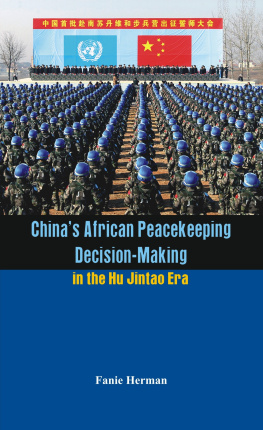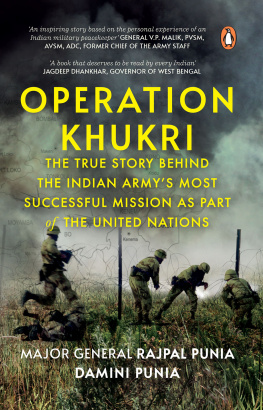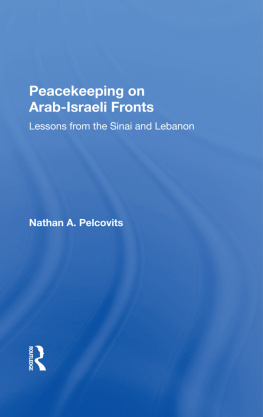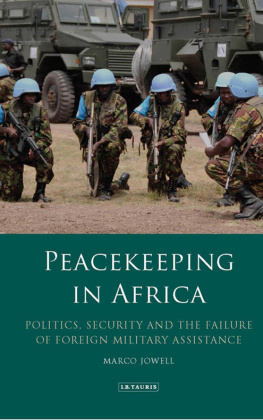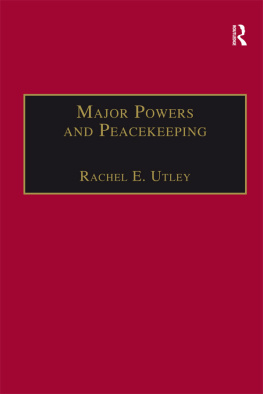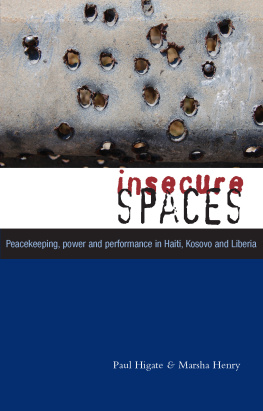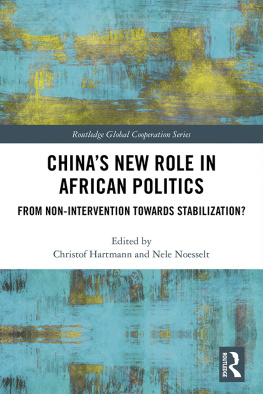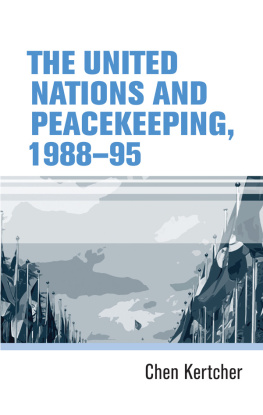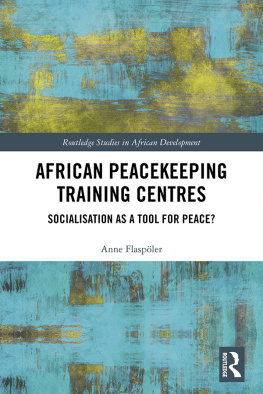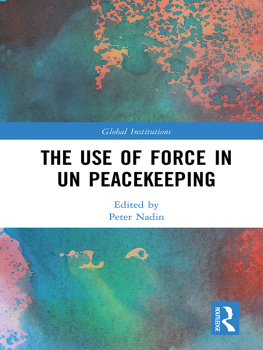Published by
Vij Books India Pvt Ltd
(Publishers, Distributors & Importers)
2/19, Ansari Road Delhi 110 002
Phones: 91-11-43596460, 91-11-47340674
Fax: 91-11-47340674
e-mail:
Copyright 2015, Fanie Herman
ISBN: 978-93-84464-85-1 (Hardback)
ISBN: 978-93-84464-90-5 (ebook)
All rights reserved.
No part of this book may be reproduced, stored in a retrieval system, transmitted or utilised in any Form or by any means, electronic, mechanical, photocopying, recording or otherwise, without the prior permission of the copyright owner. Application For such permission should be addressed to the publisher.
The views expressed in the book are of the author and not necessarily those of the publishers.
Printed and Bound in India
Chapter 1: Chinas African Peacekeeping Diplomacy: Rational Actor versus Bureaucratic Interests
Chinas role in international peacekeeping has greatly expanded since the beginning of the twenty-first century, and these efforts presently rank among one of the main contributions to peacekeeping operations (PKOs) in conflict areas worldwide. Published sources suggest that Chinas involvement in PKOs is part of its peaceful rise and development strategy, promoting its international status, becoming a responsible world player, and protecting its interests abroad. One aspect of Chinas peacekeeping diplomacy that has not been fully examined is the approach the central leadership follows in making decisions, and the influence of bureaucrats in producing results.
Occurrences in foreign affairs are perceived as actions taken by the nation or a national government.
While distinguishing between the choices of the centralized government and bureaucratic actors in policy formulation, the assumptions are that the Chinese government is a unified actor, and has a coherent utility function while acting in relation to external opportunities and willingness from the environment, and then making a cost-benefit analysis of the situation and before ultimately formulating decisions based on value-maximization.
There is an assumption that actors operating in an external environment act according to fixed preferences that are impossible to observe directly, whereas the constraints from the environment are more observable, which provide a powerful analytical premise. In view of this premise, the Chinese leadership has a coherent utility function and acts according to one set of preferences. When the national interest is better served in promoting a favorable image of China among the leaders and populations of host countries, this interest is followed rather than, for example, shifting the peacekeeping focus to protecting civilians. In addition, the leadership reacts to external stimuli from the peacekeeping environment that enables them to define objectives and implement behavior accordingly, which are defined in terms of opportunities and willingness.
A particular choice is a function of opportunity, the possibilities and constraints that decision-makers face. When presented with opportunity, a decision-makers willingness to choose a course of action reflects their goals and motivations (the menu analogy).
There are a number of opportunities that China as a contributor to
In contrast to the rational actor model (RAM), there is not any unitary actor in the view of the bureaucratic politics model (BPM). Rather, there are many actors as players who do not focus on a single strategic issue, but on many diverse intra-national problems. These are players who act in terms of there not being any consistent set of strategic objectives, since their actions follow various conceptions of national interest, organizational, and personal goals. Players who make government decisions do not make single rational choices, since they are governed by giving and taking within the states political machinery.
The question remains whether the bureaucracy has its own perceptions Although these actors operate outside the boundaries of traditional policy formulation, the goals and interests of these companies, represent the interests and constituencies of the Chinese government because they act as capacity builders of the Chinese state. They impose their own rules and regulations, but they are not monolithic when the scope of Chinas African engagement is taken into consideration.
Like many other Chinese companies doing business in postwar and stable societies, they do business in a central and competitive environment in which their success is partly measured by the view that Africans have with regard to peacekeeping troops. Taking advantage of the situation and gaining a favorable view from the local populations is indeed a strong element in assessing success or failure from the viewpoint of Chinese peacekeeping troops. It remains to be seen whether these companies as subjects of the Chinese state contribute to Chinas overall objectives, and if there is positive contact between peacekeeping troops, and the local populations and companies operating in the environment.
A criticism against these observations is that there is no connection between peacekeeping and the actions taken by the Chinese government to strengthen economic and security cooperation.
There may be a significant lack of coordination between the preferences of individual actors and the central leadership, the PLA, Ministry of Public Security, and the MFA, which all act as agents of the state and promote the interests of the Communist Party of China (CCP). However, many of these official actors have diverse perceptions of Chinas interests and even rival motives as a result of their varying domestic portfolios and international outreach activities.
It is assumed that peacekeeping intervention facilitated the objectives of these organizations. Peacekeepers could act as agents to reconcile the goals discussed in the RAM with the ambitions of the individuals who worked in these institutions.
In order to gain access to natural resources, strengthen diplomatic relations and build a relationship of trust and confidence with host countries, peacekeeping is viewed as a pragmatic tool to engage these countries on the issues mentioned above. Bureaucrats have competing preferences on organizational goals and the best way to achieve these goals is to consider national goals of lesser importance and prioritizing organizational interests. However, they could not obtain a favorable perception among business sectors if there was not a unified engagement strategy in place. In sending out positive signals about their intentions and cooperative efforts, it was necessary that they had to compromise to avoid confusion and conflict between themselves and from officials of the host countries.
Understanding the impacts these concepts may have on choices and alternatives may necessitate providing an overview of Chinas stance to PKOs. This general survey of facts and data thereby provides explanatory value. It further serves the purpose of surveying the historical evolution of Chinas PKOs, or as analysts observe, the past potentially shedding light on the future, and determining the potential motivations for China becoming
This book examines Chinas PKO in light of this position, but notes that the traditional view on PKOs is being challenged due to the characteristics of specific mission areas, UN reform with respect to PKOs, and changing views of the Chinese leadership on peacekeeping diplomacy. Specific PKOs warrant specific actions, and the direction is toward early peacebuilding activities. Whether China will maintain old traditional style of peacekeeping intervention or change its views is a matter of what style is best suited for what kind of intervention. If China has a strong view on protecting state sovereignty and non-intervention, what is the justification for sending troops on peacekeeping missions?

